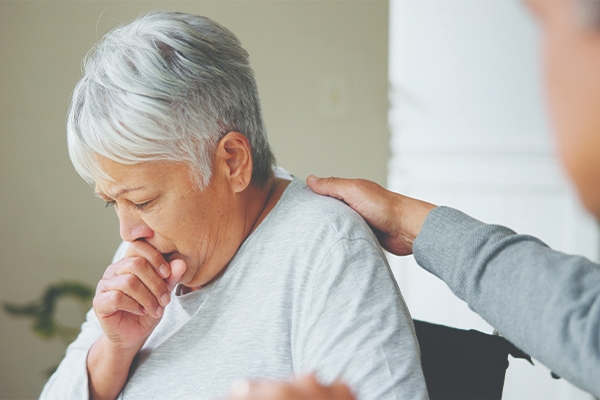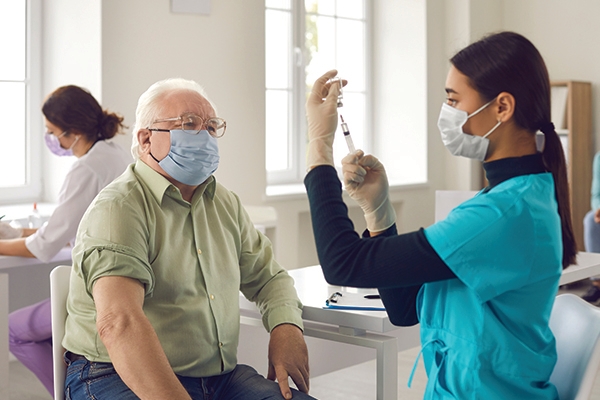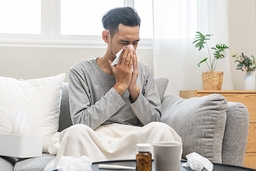Beware of RSV: The Respiratory Virus That Lurks in the Elderly

RSV (respiratory syncytial virus) may not be as well-known in the general public as the flu or COVID-19, but this virus is a common cause of respiratory tract infections. It can be serious, especially for infants and the elderly. With the rise in cases worldwide, we must learn more about RSV, including its transmission, at-risk groups, and prevention.
Respiratory syncytial virus (RSV) is among the most common respiratory viral infections worldwide. Although the number of cases continues to increase in infants and children, RSV can infect people of any age.
RSV is transmitted from person to person through the air when someone coughs or sneezes, or through direct contact with the nose, mouth, or eyes after touching a contaminated surface.
Read more: Know the Difference Between Flu and Cold.
People infected with RSV can shed the virus for up to 2 days before becoming sick, and they may remain contagious for 3 to 8 days after RSV symptoms appear.
In recent decades, epidemiological data have increasingly shown that RSV infection can occur in all ages, with a disproportionately higher impact on older individuals. The burden of RSV infection is highest in children under 5 years of age and in adults over 70 years of age.
The symptoms may differ depending on the group of people infected with RSV. Healthy adults may be asymptomatic or have only mild symptoms compared to the elderly, people with weakened immune systems, or other high-risk patients.
People infected with RSV usually develop symptoms within 4 to 6 days after infection. The clinical signs of RSV infection in the elderly are difficult to distinguish from influenza or other respiratory viruses, but some symptoms may be more specific to one pathogen.
For older persons, symptoms can be similar to the flu, such as
- runny nose;
- fever;
- coughing;
- sneezing;
- loss of appetite;
- wheezing.
RSV symptoms may not appear all at once. Or, you may experience some symptoms and not others. Some people infected with RSV may develop pneumonia (a lung infection). RSV can also worsen conditions such as asthma, COPD, and heart failure.
Read more: COPD: Emphysema and Chronic Bronchitis.
Because RSV is a virus, it cannot be treated with antibiotics. If you have a mild case, your symptoms will likely go away on their own within one to two weeks.
However, you may need to be hospitalized if the infection is more severe. While in the hospital, you may be given oxygen and fluids through an IV. In rare but life-threatening cases, you may need to be placed on a ventilator (a machine to help you breathe).
Get vaccinated for maximum protection

The Centers for Disease Control and Prevention (CDC) recommends that everyone 75 and older get the RSV vaccine. The CDC also recommends that adults 60–74 who are at high risk for severe RSV disease get the vaccine.
In addition to getting vaccinated, you can also reduce your risk of getting RSV — or spreading it to others — by following these tips:
- Wash your hands with soap regularly and often.
- If unwell, stay home from work, school, or public places, as the virus can spread quickly in crowds.
- Cover your mouth and nose with your elbow when you sneeze or cough.
- Don’t share food, beverages, or eating utensils.
- Don’t kiss if you are unwell.
- Don’t shake hands if you are sick.
- Don’t touch babies if you are unwell.
- Wash eating utensils with hot water and soap.
RSV is not just a common cold. This virus can cause serious complications, especially for vulnerable groups. Don't ignore the protection you can provide.
RSV vaccination at GWS Medika Clinic, a health clinic in Jakarta, is essential to maintaining your and your loved ones' health.



